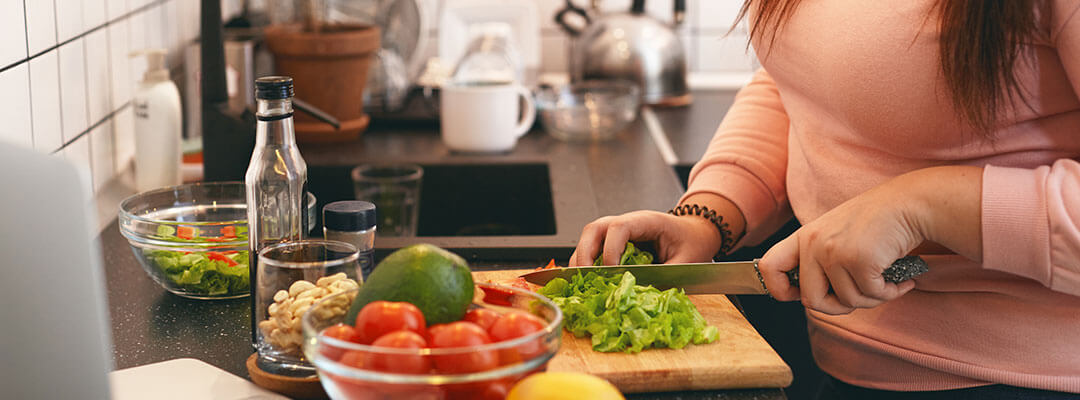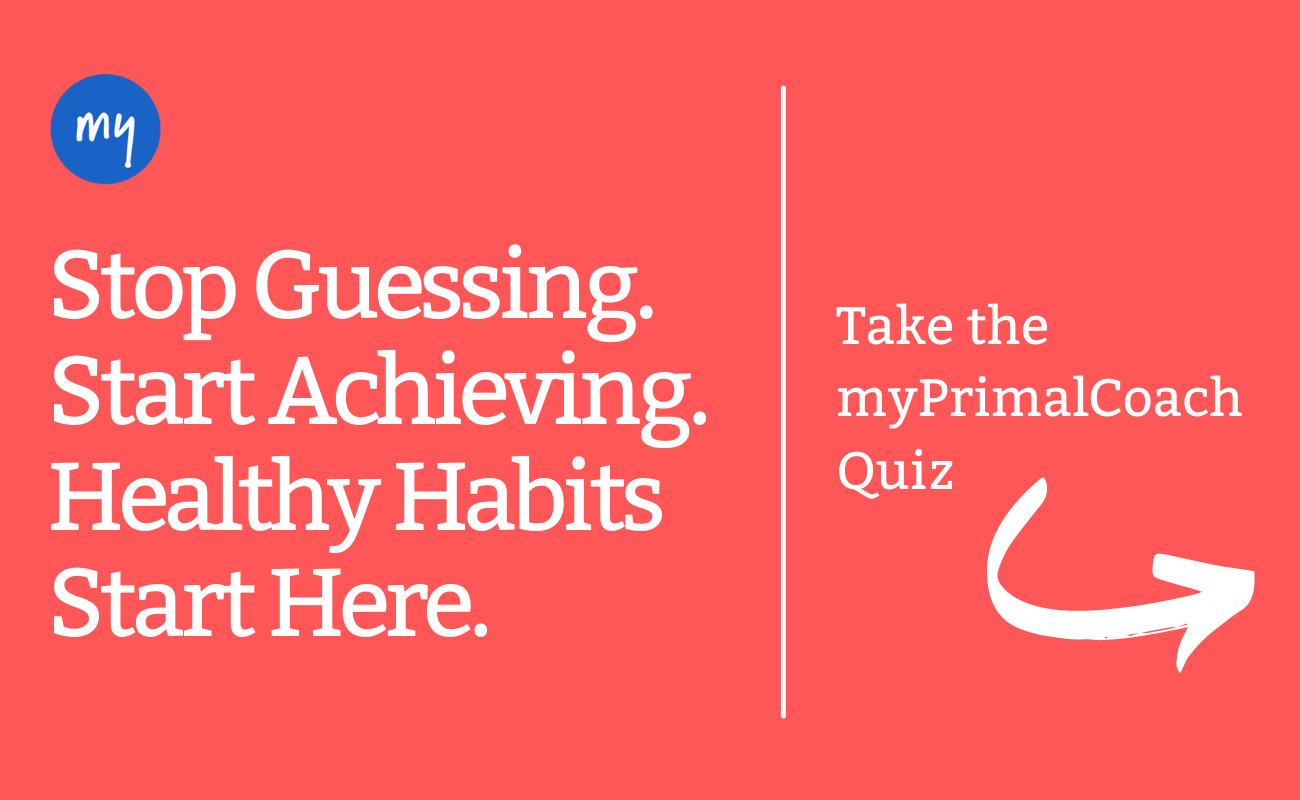Is there such a thing as an insulin resistance PCOS diet that can relieve symptoms and make you feel like yourself again? Many women suffering with PCOS tend to have higher than normal levels of circulating insulin—this may indicate insulin resistance is also at play. Can switching up the foods you eat help tackle both?
The good news is dietary interventions, losing weight, and lifestyle modifications have been shown to be effective in managing symptoms of PCOS, per a systematic review published in 2021. In addition, diet is often the first line of defense doctors defer to in preventing insulin resistance and diabetes, per WebMD.
Before we dive into what those dietary changes are, let’s first review what exactly PCOS is, what is happening in the body when insulin resistance occurs, and how the two often go hand-in-hand.

What Is PCOS?
Polycystic ovary syndrome (also called polycystic ovarian syndrome) is a hormonal imbalance that affects 4-20% of women of reproductive age worldwide. Women with PCOS produce higher levels of male hormones, called androgens, that may lead to the formation of cysts on their ovaries.
This hormonal imbalance with higher androgen levels often causes irregular periods, missed periods, unpredictable ovulation, or no ovulation at all. PCOS is a leading cause of infertility and other fertility issues for this reason. While named after the multiple small cysts that result from excess androgens, a woman can still have PCOS and no cysts on her ovaries at all.
Overweight and obese women with a high body mass index are at a higher risk of developing PCOS. Losing weight, taking prescription hormonal birth control and/or PCOS supplements, are common treatments to manage symptoms for the PCOS population.
Common PCOS Symptoms Include:
- Weight gain
- Excessive hair growth on face and body
- Thinning hair or male pattern balding
- Missed or irregular periods
- Oily skin and acne
- Infertility
- Skin tags
- Dark patches of skin on the neck, armpits, or under breasts
- Digestive symptoms
While the exact cause of PCOS is unknown, it is linked to insulin resistance and higher than normal insulin levels. Some evidence even places insulin resistance as the root cause of PCOS and being responsible for worsening the symptoms. Between 65-70% of women with PCOS are also insulin resistant. More than half of them will develop type 2 diabetes by the time they reach age 40, according to the Centers for Disease Control and Prevention.
What Is Insulin Resistance?
Insulin is a hormone secreted by the pancreas and a key player in blood sugar regulation. Its job is to clear the glucose from the food we eat from the bloodstream and store it in your cells. When blood sugar is elevated, your brain signals your pancreas to release insulin. The insulin travels throughout your bloodstream grabbing the glucose and bringing it to your cells. Like a lock and key, the insulin receptors on your cells open up and take in the glucose to be used at another time when needed.
Insulin resistance occurs when this function occurs over and over again, day in and day out. At a certain point, your cells are bombarded and become desensitized to the hormone. They “resist” the insulin and interfere with the insulin’s ability to transport the glucose into your cells.
In other words, the key doesn’t work and the cells remain locked. When this happens, the levels of both sugar and insulin in your blood climb. Your pancreas continues to pump out more insulin but is unable to clear the glucose from the bloodstream because the cells aren’t receptive. Insulin resistance is a hop, skip, and a jump away from prediabetes and type 2 diabetes, per the American Diabetes Association.
Common Symptoms of Insulin resistance Include:
- A waist circumference of over 35-inches in women
- Elevated blood pressure
- Elevated fasting glucose levels
- Elevated fasting triglyceride levels
- Lower HDL levels
- Cardiovascular disease
- Skin tags
- Dark patches of skin on the neck, armpits, or under breasts
- Food cravings, particularly sugar cravings
Managing Insulin Resistance and PCOS Through Diet
Managing PCOS goes hand-in-hand with tackling insulin resistance. Dietary changes and nutritional management can be an effective approach to handling both. Dietary carbohydrates in the food we eat, can be broken down into glucose which, in turn, raises our blood sugar and triggers the release of insulin. Minimizing the consumption of foods that cause this response, such as with a low carbohydrate diet, is a practical tactic to keep the symptoms of PCOS at bay.
Foods to Avoid:
- Starchy and sugary foods with a high glycemic index
- Refined sugars
- Added sugar
- Sugary beverages, such as soda, juices, and energy drinks
- High fructose corn syrup
- White flour products, such as bread and pasta
- Packaged foods, such as muffins, cookies, and pastries
- Processed snacks like chips and crackers
- Processed meats, including hot dogs and lunch meats
- Trans fats such as margarine and shortening
- Fried foods
- Starchy vegetables such as white potatoes
- Dairy products
On the contrary, foods that don’t spike blood sugar (such as those high in dietary fiber), as well as foods with anti-inflammatory properties, may be beneficial to managing associated symptoms.
Anti-Inflammatory Foods to Consume:
- Non-starchy vegetables such as dark leafy greens, cruciferous veggies, and bell peppers
- Green tea
- Lean proteins
- Fatty fish such as salmon, mackerel, sardines, and tuna
- Almonds
- Berries
- Extra-virgin olive oil
- Avocados
- Coconuts
- Tomatoes
- Turmeric
- Cinnamon
- Unprocessed foods
Insulin Resistance PCOS Diets That Work
Implementing a diet that will help with weight management and improve body composition is likely to improve the health and wellbeing in insulin resistance PCOS sufferers.
Here’s three diets that have been proven to reduce and even reverse insulin resistance and PCOS:
Summary
The tie between insulin resistance and PCOS is clear, and adjusting nutrient intake as well as adopting an insulin resistance PCOS diet may be of help in relieving symptoms. Cutting sugar and upping your intake of anti-inflammatory foods might just have you feeling like yourself again.
It’s always best to first consult with your healthcare provider before embarking on an insulin resistance PCOS diet or any new way of eating. However, a qualified health coach, such as a myPrimalCoach, can help you adopt a healthy lifestyle to manage PCOS and insulin resistance symptoms, as well as implement long-term lifestyle changes to keep you feeling your best.

